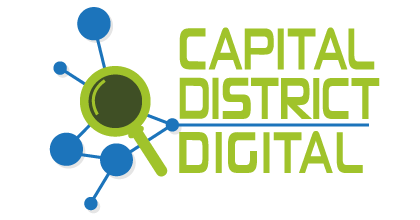Top 5 Reasons to Have a Blog on Your Website

In this post, we will explore the top 5 reasons why having a blog on your website is essential for your online success. Whether you are a small business owner or a content creator, a blog can be a powerful tool to drive traffic, engage your audience, and establish your authority in your industry.
1. Boost Your SEO
One of the primary benefits of having a blog on your website is its potential to improve your search engine optimization (SEO). By regularly publishing high-quality, keyword-optimized content, you can increase your website’s visibility on search engine result pages.
For example, if you own a coffee shop in Albany, NY, regularly posting blog articles about coffee-related topics, such as “The Best Coffee Beans for Espresso in Albany,” can help your website rank higher for relevant search queries like “coffee in Albany” or “espresso beans Albany.”
By strategically incorporating your target keywords and location throughout your blog posts, you can signal to search engines that your website is a valuable resource for users searching for specific information in your area.
2. Engage Your Audience
A blog provides an excellent platform to engage your audience and build a community around your brand or expertise. By publishing informative and entertaining content, you can attract and retain visitors on your website.
Interacting with your audience through comments, social media shares, and email subscriptions allows you to foster a loyal following and establish yourself as an industry thought leader.
- Respond promptly to comments to encourage discussion and show your expertise.
- Promote your blog posts on social media platforms to increase visibility.
- Offer a subscribe option to keep your audience updated with new content.
3. Establish Your Authority
A blog can help you establish yourself as an authority in your industry. By consistently providing valuable and insightful content, you can gain the trust and respect of your audience and peers.
Writing well-researched articles, sharing personal experiences, and offering expert advice can position you as a knowledgeable and trustworthy source. This can lead to opportunities such as speaking engagements, collaborations, and media interviews.
4. Drive Traffic and Generate Leads
A well-optimized blog can be a powerful tool to drive traffic to your website. By creating content that answers your audience’s questions, you can attract visitors who are actively searching for solutions or information related to your products or services.
By including relevant calls-to-action (CTAs) within your blog posts, such as signing up for a newsletter or downloading a free e-book, you can convert your blog readers into leads. These leads can then be nurtured through email marketing campaigns or other marketing strategies to eventually become customers.
5. Stay Ahead of the Curve
Lastly, having a blog on your website allows you to stay ahead of the curve and keep up with the latest trends and developments in your industry. By researching and writing about emerging topics, you can position your brand as a forward-thinking and innovative leader.
Regularly updating your blog with fresh content also signals to search engines that your website is active and relevant, which can positively impact your SEO rankings.
Frequently Asked Questions
- Q: How often should I update my blog?
- A: It is recommended to update your blog at least once a week to keep your audience engaged and search engines crawling your website regularly.
- Q: Can a blog help with my website’s ranking on search engines?
- A: Yes, a blog can significantly improve your website’s ranking on search engines by providing keyword-optimized content and attracting inbound links from other reputable websites.
- Q: How long should my blog posts be?
- A: While there is no specific word count requirement, aim for a minimum of 500 words to provide enough depth and value to your readers.
- Q: Should I include images in my blog posts?
- A: Yes, incorporating relevant and visually appealing images can enhance the user experience and make your blog posts more engaging.
- Q: Can I monetize my blog?
- A: Absolutely! Once you have built a substantial audience, you can explore various monetization options such as display advertising, sponsored content, or selling your own products or services.
Now that you understand the top 5 reasons why having a blog on your website is crucial, it’s time to start creating valuable content that will drive traffic, engage your audience, and establish your authority. Happy blogging!
Latest Reviews
Get Started Growing Your Business Today!




